In downtown Denver, an unusual silhouette has emerged against the skyline—white-hued, scalloped, and punctuated by a pattern of “eyes” that seem to watch the city. This is Populus, a 265-room hotel and a study in how a building can be both striking and ecologically ambitious. From the outside, the building’s unusual design suggests that someone cared deeply about how this hotel was made. Inside, that care is lived rather than advertised. An ethos of environmental stewardship shapes everything, from the materials in the walls to the way sunlight naturally warms a room. Most guests might not think twice about the energy-efficient windows or locally sourced timber, but they’ll surely notice how it all works together to create a more-than-welcoming atmosphere.
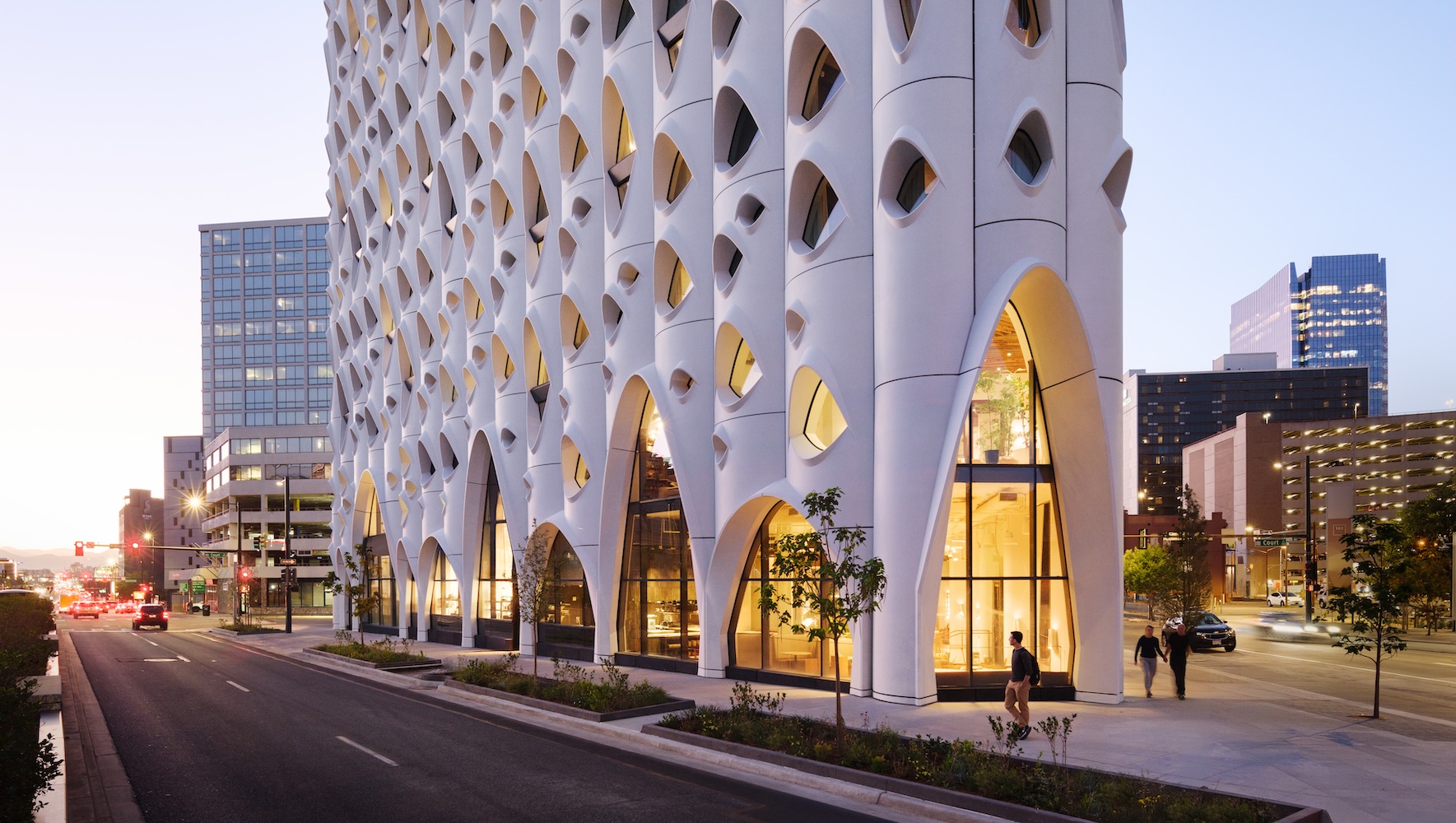
Designed by Studio Gang, the internationally acclaimed architecture firm led by Jeanne Gang, Populus features 12 room layouts, all designed as calm retreats. The choices range from spacious suites to small, intimate retreats. Minimalist Grove and Aspen rooms focus on essentials, while suites add living areas and expanded views. The Pando Suite crowns the top floor with a soaking tub, dining area, and sweeping city-to-mountain panoramas.
Whichever you choose, you’ll find plush beds and bedding, comfy robes, and mini bars stocked with deluxe-sized spirits, a particularly indulgent detail. Even the coziest accommodations are inviting, yet it helps that there’s plenty of communal room to stretch out elsewhere, such as within the second floor lounge. Further upstairs, another communal space (within the Stellar Jay restaurant) offers complimentary morning coffee, best enjoyed on the adjoining open-air terrace with its views of Civic Center Park.
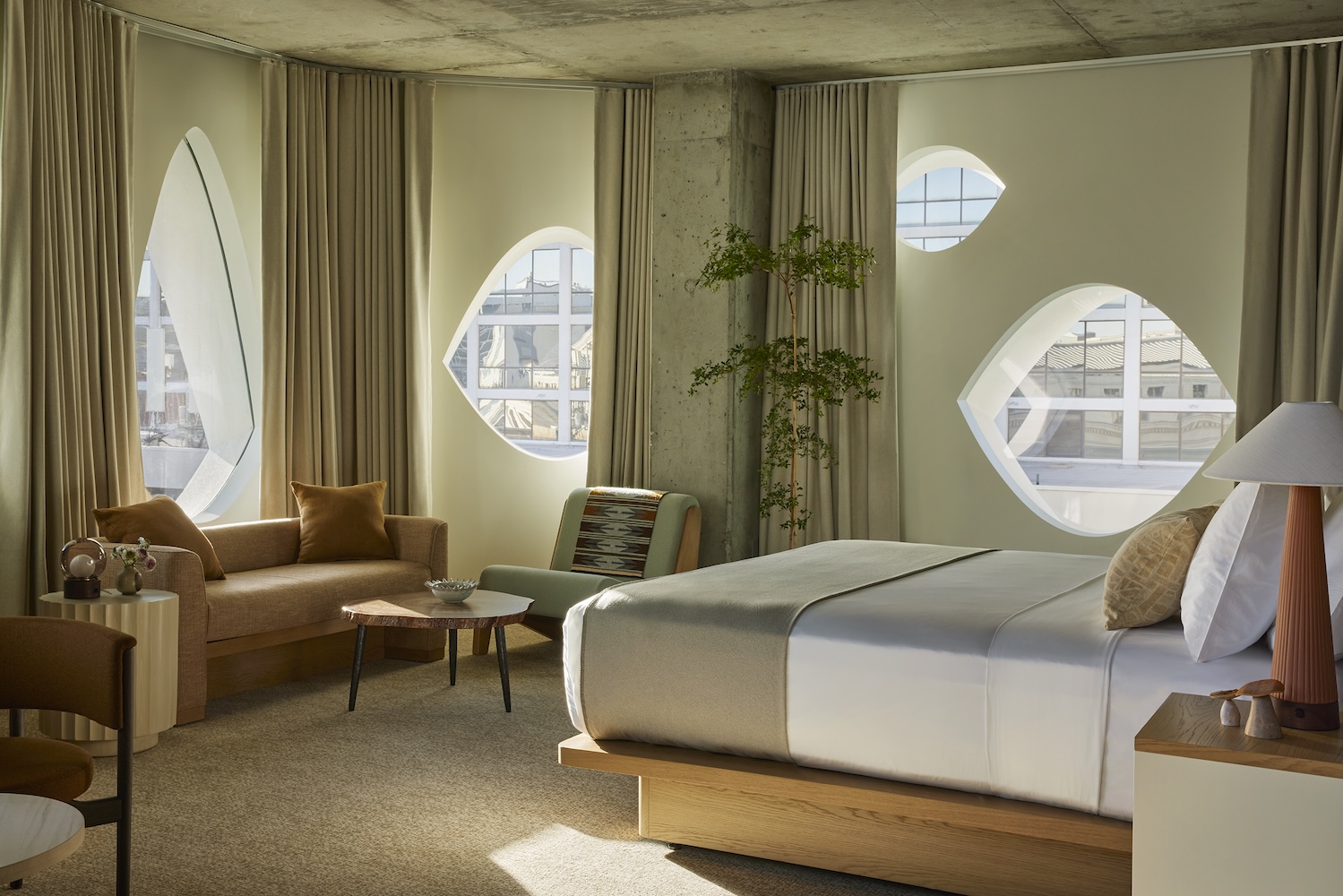
Nature at the Core
The hotel’s whimsical design was inspired by a Colorado hike during which Gang studied the native aspen tree, Populus tremuloides. Aspens shed their lower branches as they grow, leaving behind distinctive dark oval marks on pale bark. At Populus, those shapes appear as window openings, some as tall as 30 feet on the ground floor, with subtle “lids” that shade interiors from Denver’s strong sun. In many guest rooms, the Aspen-eye windows extend into cushioned hammocks, a detail that transforms the window into both seat and frame—private perches from which to survey the neighborhood.
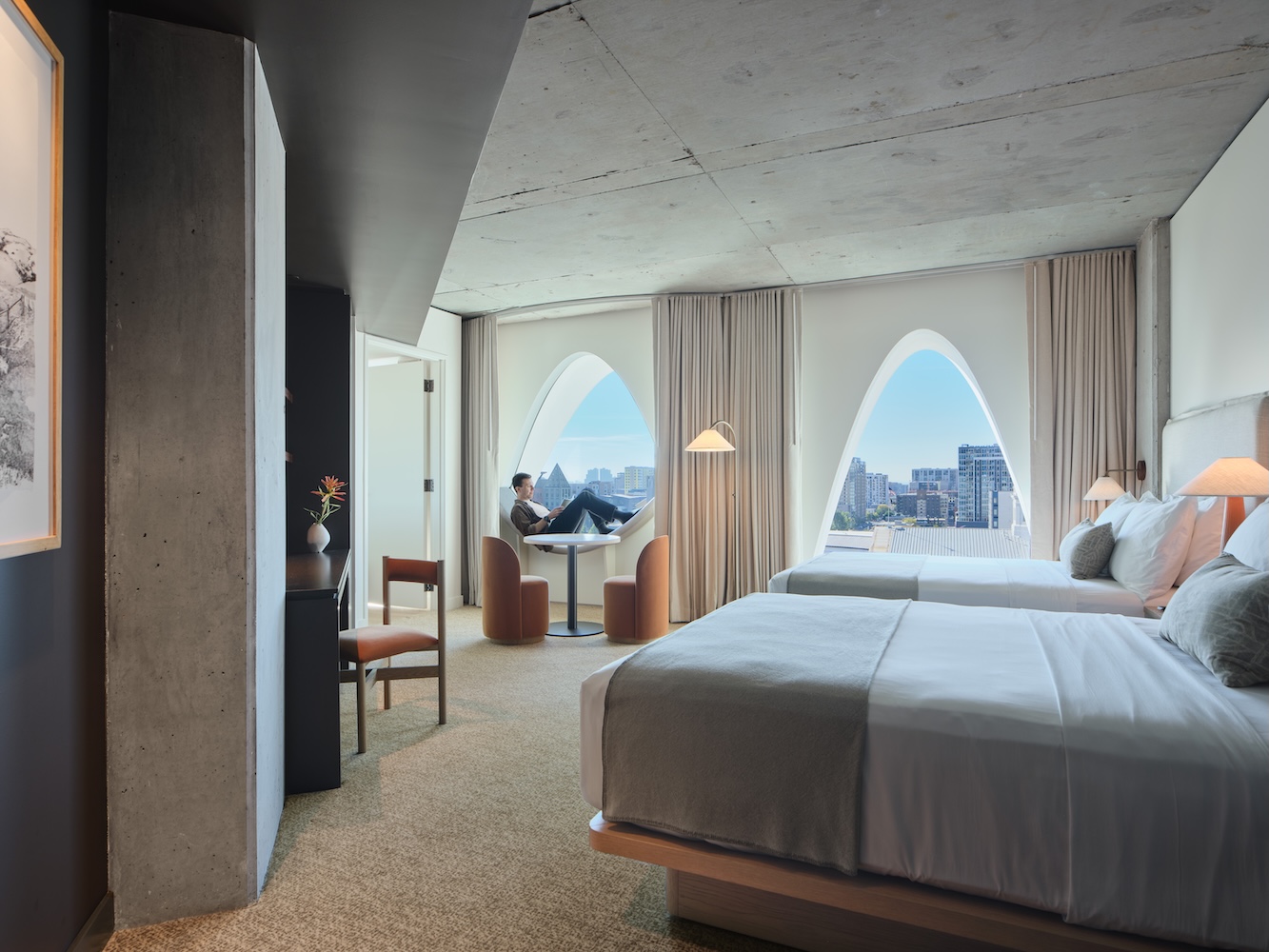
A Carbon-Positive Commitment
But Populus was designed with a purpose beyond visual impact. Developed by Urban Villages, it is the first carbon-positive hotel in the United States. This means that every ton of embodied and operational carbon over the building’s lifecycle will be more than offset through forest and soil sequestration projects. That commitment began with the build. The structure uses low-carbon concrete from Holcim, cutting CO₂ emissions by at least 30 percent. There is no parking garage (a first for a new-build hotel in Denver) to avoid the carbon cost of steel and reinforced concrete, and to encourage public transit, cycling, and walking. Interior finishes were chosen for durability and recycled content: reclaimed Wyoming snow fencing, beetle-kill pine, recycled leather veneer, and wallcoverings that improve with age.
Populus offsets the carbon from its construction with reforestation projects in Colorado, including planting more than 70,000 Engelmann spruces in Gunnison County. Its “One Night, One Tree program” will add up to 20,000 trees this year alone, giving guests a tangible role in the hotel’s environmental story.
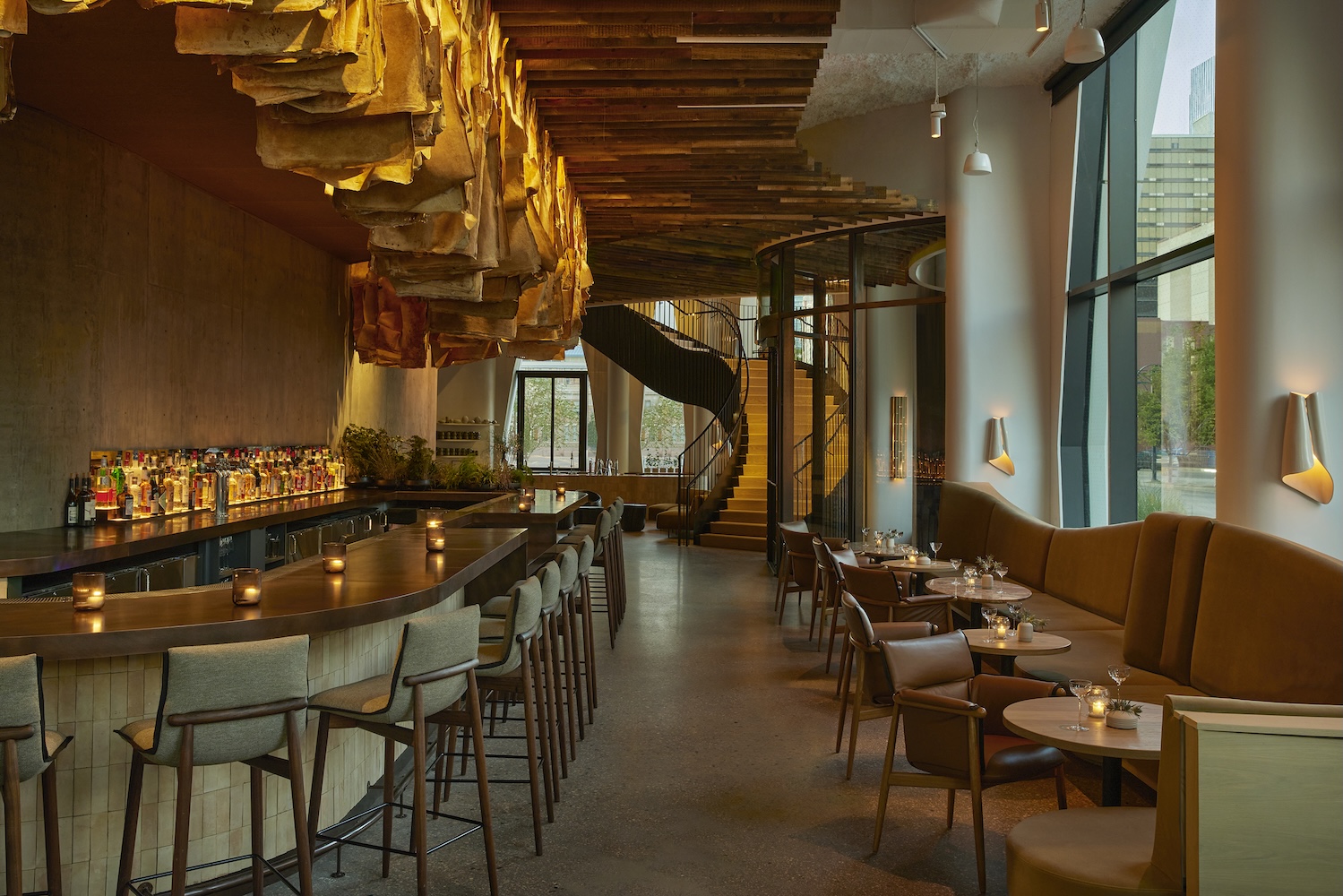
Interiors That Echo the Landscape
Wildman Chalmers Design created interiors that move through the layers of an aspen grove: warm, earthen tones on the “forest floor” lobby; lighter, airier palettes in the guest room “trunks;” and a burst of color in the rooftop “canopy.” In lobby-adjacent Pasque, a sculpture called The Reishi Tapestry hangs in soft folds, made from mycelium leather, an innovation derived from the root structure of mushrooms. The reception desk is carved from a locally sourced cottonwood log, while the ceiling is lined with weathered wood from reclaimed snow fencing.
Art, curated by Colorado artist Katherine Homes, appears throughout the building. There are pressed native wildflowers in guest rooms, a commissioned work by Cheyenne and Arapaho painter Brent Learned, and elevator soundscapes of local bird calls recorded in Rocky Mountain National Park.
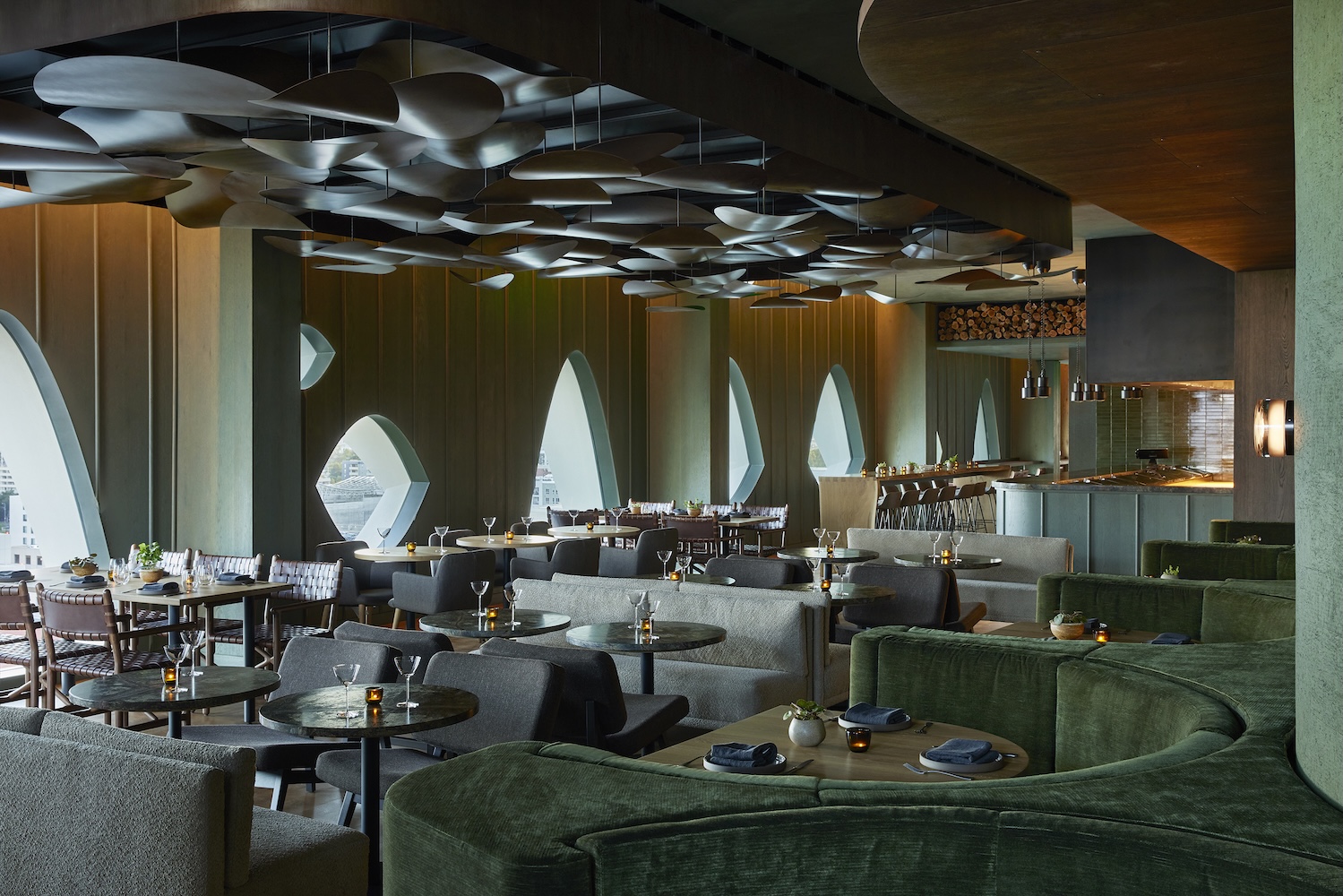
Dining in the “Forest Floor” and “Canopy”
Chef Ian Wortham oversees Populus’ two signature restaurants, each designed to reflect a layer of the aspen grove. Pasque, on the lobby level, takes its name from a native wildflower that blooms early in the season. It is open from breakfast through dinner, serving seasonal dishes built around Mountain West produce, responsibly raised proteins, and a zero-waste philosophy. The dining room curves with banquettes beneath oversized Aspen-eye windows framing the Capitol dome. Tables are carved from stone, and the overhead mycelium installation glows warmly at night.
Upstairs, Stellar Jay occupies the rooftop “canopy.” It’s a lively, indoor-outdoor venue where wood-fired cooking takes center stage. The design is saturated with green lime-washed ceilings, charred wood walls, and a custom light installation that scatters light like sun through leaves. The terrace looks over Denver’s Civic Center and State Capitol, with landscaping that brings pollinator-friendly plants to the rooftop.
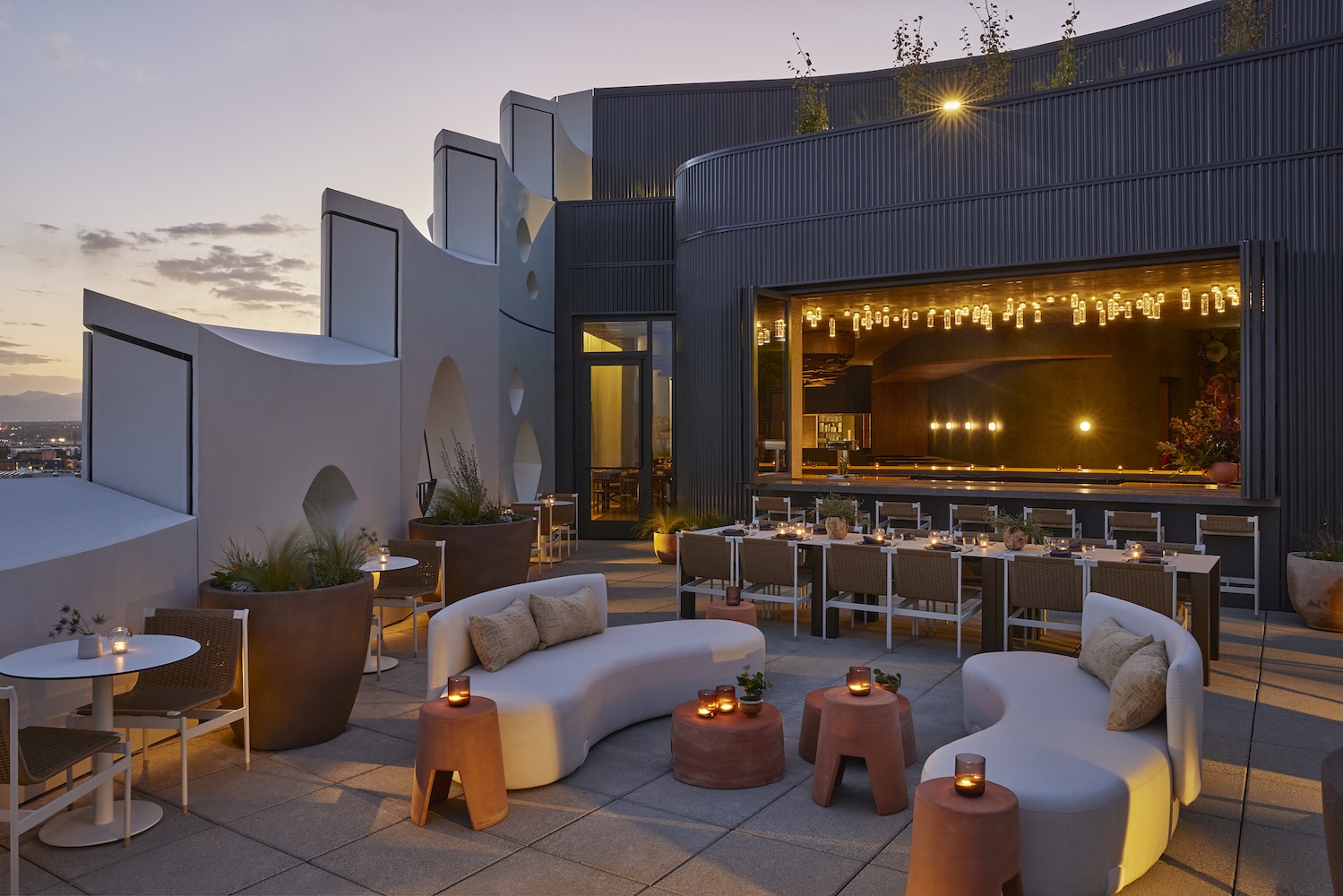
On the ground floor, Denver favorite Little Owl Coffee serves espresso drinks, pastries, and grab-and-go bites. It has provided an easy connection to the neighborhood, with local residents finding both their caffeine fix and a cozy seating area in which to enjoy it.
Pasque and Stellar Jay operate with the same ecological rigor as the hotel itself. Food is sourced through regenerative agriculture partnerships, and Populus is the first downtown Denver hotel to use BioGreen360 “food cycling” technology, turning all food waste into compost for local farms. As a Zero Foodprint member, one percent of restaurant sales go to regenerative farming grants.
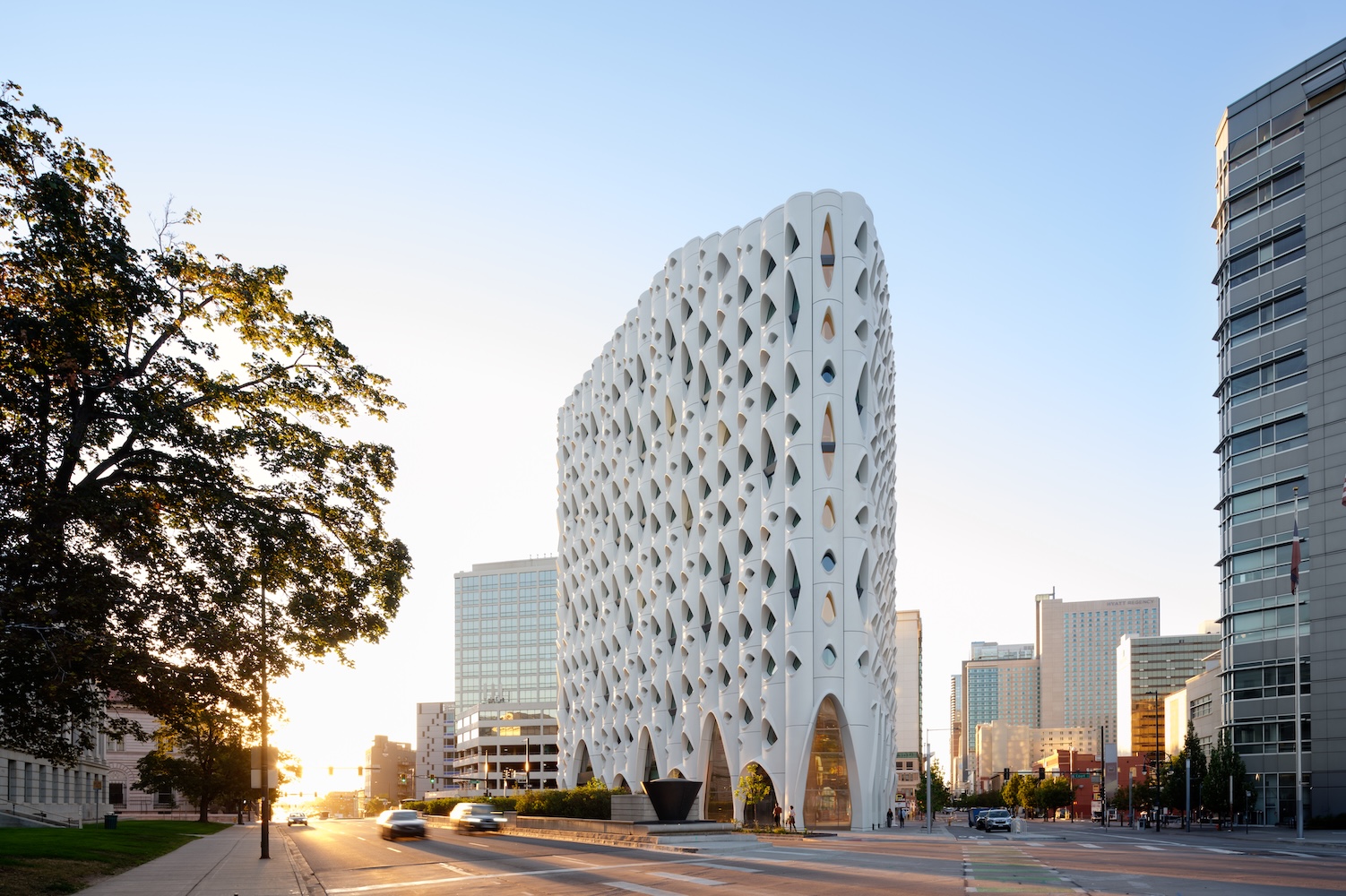
A New Standard for Urban Hospitality
Populus is more than its architectural profile, its reforested acres, or its seasonal menus. It is proof that a hotel can thrive in the heart of a city while actively improving the environment. Guests can walk out the door into Denver’s cultural and civic core, then return to a room whose design links them to the surrounding mountains and forests.
Populus makes a statement, not just about design, but about what urban hospitality can become when it aligns beauty with responsibility. The hotel’s environmental conscience is like its best amenities, woven seamlessly into the experience. The commitment to sustainability is everywhere and nowhere all at once, and embedded so effortlessly that you might never think about it. Yet, you’ll feel it in the quality of the air and the softness of the sheets. No speeches and no slogans; just the satisfaction of knowing you’ve stayed somewhere that’s as good to the planet as it is to you.
Photos courtesy of Populus Denver
